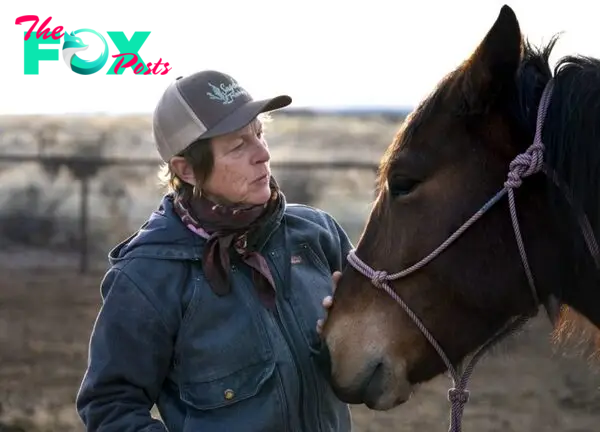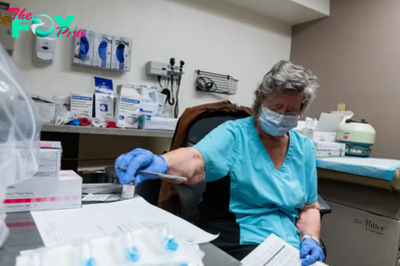Health
Rural Colorado’s “cowboy up” culture has led to high suicide rates. How can the state improve mental health in agriculture?
San Luis Valley cattle rancher George Whitten was halfway through a mental health workshop when he let himself tally up a figure he had never wanted to know — the number of people in his life who had died by suicide.
It was eight.
“You just sort of file that away in a gray box, a place in your mind that it’s there, but it’s not something you want to revisit,” said Whitten, who is 71 and runs 150 cows on land outside Saguache that has been in his family for 140 years. “There’s still a lot there that I really haven’t unpacked.”
All eight of those relatives and friends were from the rural, agricultural community, starting with Whitten’s cousin, who died at 18 after he was sent from the family’s ranch to Brigham Young University. The young man was depressed and wanted to come home, but his father told him to stick it out. Then he went missing.
Seven years later, his body was found in a cave next to a pistol.
“For all those seven years,” Whitten said, “we were waiting for him to come driving in.”
The workshop Whitten attended in February was the inaugural Buck the Trend, a therapist-led, two-day session in Mancos for ranchers, farmers and horse people to dig into the mental Health struggles. It’s one of the latest ideas — along with new grants for rural counties and at least two pieces of legislation at the state Capitol this session — to address an alarming rise in the suicide rate in ag communities.
Nationally, the suicide rate for people in the agriculture industry is 3.5 times higher than other professions. Farmers and ranchers are dying at higher rates than the general population in Colorado, too, in a state that has one of the highest suicide rates in the country.
In the five years from 2018 to 2022, there were 102 suicides among people whose careers are in agriculture, forestry, fishing or hunting, according to the Colorado Department of Public Health and Environment. That’s the fourth-highest rate among all occupations tracked by the department, behind construction workers, mining and oil workers, and managers of companies.
It’s the isolation, the stress of debt and drought and crop-eating pests, and the “cowboy up” mentality that talking about feelings or asking for help is weak.
Maddy Butcher, a horsewoman, author and founder of Nicker News, created the workshop in the hopes of sparking conversation about a topic that’s hard for many people to talk about, but particularly rural, ranching types. The community is built on isolation and stoicism, on sucking it up when things get hard, she said. And there is a lack of skills “around how to deal with your own well-being or somebody else’s crisis.”
That first hit Butcher, who lives in Dolores in southwestern Colorado, in 2017, when a well-liked and accomplished Wyoming horse trainer shot himself beside a highway. Peter Campbell’s death rocked the horse community across the country, where he was known as a horse whisperer.

Butcher, a freelance writer, was hired by a horse magazine to write about Campbell’s death — and then was shocked when the editor would not let her say how he died.
“It was a missed opportunity to elevate the conversation about mental health,” Butcher said.
Instead, Butcher wrote what actually happened on her horse blog, eliciting comments from readers who debated whether she should have revealed that it was suicide. One reader told her it was in “poor taste” and disrespectful to Campbell’s family. Another speculated that the only way Campbell would end his life is if he were terminally ill and didn’t “want to be a burden.”
That was only six years ago, before the COVID pandemic that exacerbated the mental health crisis and before many people were paying attention to suicide rates in rural communities.
The stigma and shame of suicide have lifted some since then, but it’s still particularly tough in the ranching world. Butcher grew up in Maine among lobster harvesters, where the culture was similar in some ways to rural Colorado, she said.
“I was one of those people — chin up, soldier on,” Butcher said. “It works until it doesn’t.”
“Don’t air your dirty laundry”
Caitlyn Taussig, who runs a cattle ranch outside of Kremmling with her 76-year-old mother, attended Buck the Trend after going through depression spurred by a breakup with a boyfriend.
-

 Health1d ago
Health1d agoTeens Are Stuck on Their Screens. Here’s How to Protect Them
-

 Health1d ago
Health1d agoHow Pulmonary Rehab Can Help Improve Asthma Symptoms
-

 Health1d ago
Health1d ago10 Things to Say When Someone Asks Why You’re Still Single
-

 Health2d ago
Health2d agoThe Surprising Benefits of Talking Out Loud to Yourself
-

 Health2d ago
Health2d agoDoctor’s bills often come with sticker shock for patients − but health insurance could be reinvented to provide costs upfront
-

 Health3d ago
Health3d agoWhat an HPV Diagnosis Really Means
-

 Health3d ago
Health3d agoThere’s an E. Coli Outbreak in Organic Carrots
-

 Health4d ago
Health4d agoCOVID-19’s Surprising Effect on Cancer



























